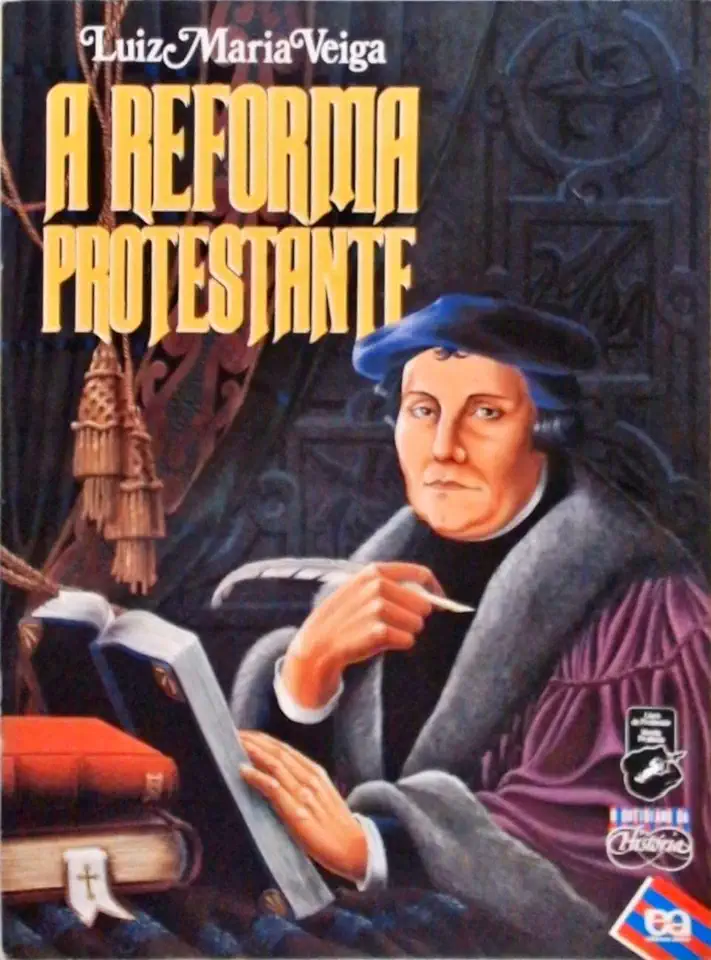
The Protestant Reformation - Luiz Maria Veiga
The Protestant Reformation: A History
Introduction
The Protestant Reformation was a religious movement that swept across Europe in the 16th century. It began with Martin Luther's 95 Theses, which he posted on the door of the All Saints' Church in Wittenberg, Germany, in 1517. Luther's theses challenged the authority of the Roman Catholic Church and its practices, such as the sale of indulgences.
The Reformation quickly spread throughout Europe, and it led to the formation of new Protestant denominations, such as Lutheranism, Calvinism, and Anglicanism. The Reformation also had a profound impact on European politics, culture, and society.
The Causes of the Reformation
There were many factors that contributed to the Protestant Reformation. Some of the most important causes include:
- The rise of humanism: Humanism was a philosophical movement that emphasized the importance of human reason and experience. Humanists believed that people should be able to read and interpret the Bible for themselves, rather than relying on the authority of the Church.
- The corruption of the Catholic Church: The Catholic Church was widely seen as corrupt in the 16th century. Many priests and bishops were wealthy and worldly, and they often abused their power. This corruption led many people to lose faith in the Church.
- The invention of the printing press: The printing press made it possible to mass-produce books and pamphlets. This allowed Luther and other reformers to spread their ideas quickly and easily throughout Europe.
The Course of the Reformation
The Reformation began in Germany, but it quickly spread to other parts of Europe. In Switzerland, Ulrich Zwingli led a reform movement that was similar to Luther's. In France, John Calvin founded a new Protestant denomination called Calvinism. In England, Henry VIII broke with the Catholic Church and established the Church of England.
The Reformation led to a number of religious wars in Europe. The most famous of these wars was the Thirty Years' War (1618-1648), which devastated much of Europe.
The Impact of the Reformation
The Reformation had a profound impact on European politics, culture, and society. Some of the most important effects of the Reformation include:
- The rise of religious pluralism: The Reformation led to the end of the religious monopoly of the Catholic Church. This allowed for the development of new Protestant denominations, as well as other religious groups, such as the Anabaptists and the Quakers.
- The spread of literacy: The printing press made it possible to mass-produce books and pamphlets, which led to a dramatic increase in literacy rates in Europe. This made it possible for more people to read the Bible and other religious texts for themselves.
- The rise of individualism: The Reformation emphasized the importance of individual conscience and the right to interpret the Bible for oneself. This led to a new sense of individualism in Europe, which had a profound impact on European culture and society.
Conclusion
The Protestant Reformation was a major turning point in European history. It led to the end of the religious monopoly of the Catholic Church, the spread of literacy, and the rise of individualism. These changes had a profound impact on European politics, culture, and society, and they continue to shape the world today.
Why You Should Read This Book
If you are interested in European history, religion, or culture, then you should read this book. It is a comprehensive and well-written history of the Protestant Reformation, and it provides a fascinating look at one of the most important periods in European history.
This book is also a valuable resource for anyone who is interested in understanding the origins of modern Christianity. The Protestant Reformation led to the development of new Protestant denominations, such as Lutheranism, Calvinism, and Anglicanism, and these denominations have had a profound impact on the world.
If you are looking for a book that will inform and inspire you, then I highly recommend this book. It is a must-read for anyone who wants to understand the history of Europe and the world.
Enjoyed the summary? Discover all the details and take your reading to the next level — [click here to view the book on Amazon!]